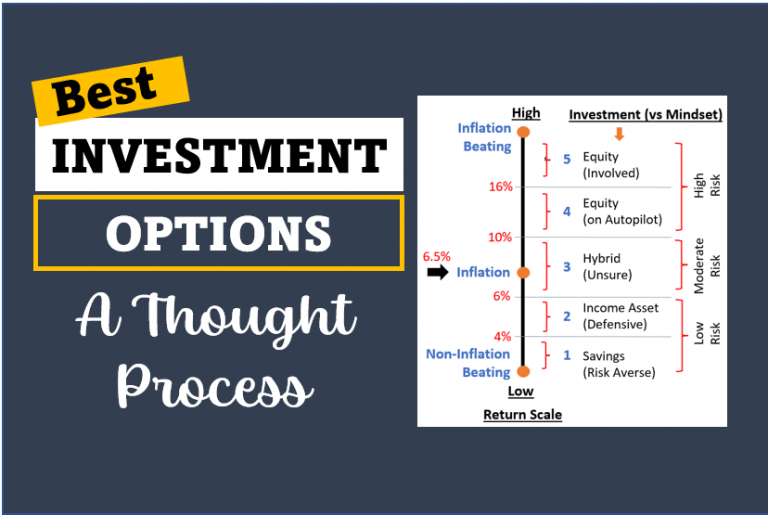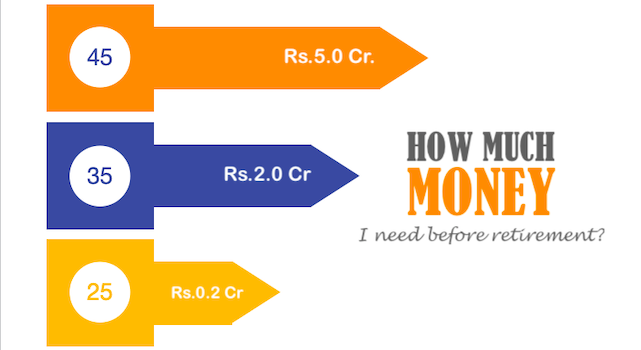REIT is an acronym for Real Estate Investment Trust. REIT is basically a company which develops and own ‘income producing’ real estate properties. IPO of India’s first REIT was launched on 18-Mar’19. Shares of Indian REIT started trading from 01st April’19 in Bombay Stock Exchange.
In the 3Q ending 31-Dec’2019, Embassy REIT has posted a 9 month income of Rs.16,603 Crores. The net profit (PAT) for the 9 month period was Rs.7,077 Crores. This way its Basic Earning Per Share (EPS) comes out to be Rs.9.17 per share. Check the 3rd quarter report here…
For REIT’s there is a mandate that out of all Net Profit (PAT), at least 90% should be paid out as dividends to its shareholders. It means, not more than 10% of PAT can be kept as retained earnings by REIT’s in India.
So we have three numbers of significance here. Current Share price of Rs.348. Potential dividend payout is Rs.8.25 per share (90% of EPS Rs.9.17 – only 3Q considered for calculation).
This way minimum expected dividend yield, at current price levels of Rs.348 will be 2.37%. In current market scenario (19-Mar’2020), where share price are falling rapidly, the yield may improve further in next 1-2 months. Read more on real estate investment here…
Embassy REIT Share Price
| Share Price (Rs.) | A | 348 |
| – 52W High (Rs.) | A.1 | 518 |
| – 52W Low (Rs.) | A.2 | 300 |
| Book Value (Rs.) | B | 299.88 |
| Face Value (Rs.) | C | 300 |
| Nos. of Shares Issued (Cr.) | E | 76.35 |
| Market Cap (Rs.Cr.) | D = E*A | 26,569 |
| P/B Ratio | F = A/B | 1.160 |
| Min. Buy Qty (nos) | G | 200 |
| Min. Investment (Rs. Lakhs) | H = A*G | 69,600 |
Table updated as on 19-Mar’20. Read more about EMBASSY REIT here…
How REITs work?
REIT Introduction…
Real estate sector needed a push in India. In cities like Mumbai, Bangalore, Delhi NCR, Pune, Chennai, Hyderabad, real estate work is good. But who is benefiting from this growth? At least not the common man. Why?
Because quality properties are expensive and are beyond the reach of majority population. Common men can get their hands on only below-average properties. It is only the rich who are benefited.
What government has done to include common men in the real estate’s growth story?
- In 2016 budget, they passed the real estate regulators bill. Now there is a “regulator” who will take care of the concerns of all real estate investors.
- In 2019 March, IPO of India’s first REIT was launched.

Why to invest in REIT?
One of friend asked this interesting question about REIT. Why to buy REIT shares and not directly buy commercial properties? Because of the following Reasons:
- Less Capital Intensive: Direct investment in real estate property is very capital intensive. But each shares of REITs will be comparatively more affordable (it will not require large capital outflows).
- Suitable for small Investors: Moreover, buying property directly exposes common men to the POWERFUL BUILDERS. Investing through REITs will eliminate dealing with builders altogether.
- Transparency: REITs stocks are listed in stock market. Hence all relevant details will all be available online for its investors.
- Assured Dividends: REITs generates income in form of dividend. REITs dividend payment is relatively assured. Why? Because most of their income is in the form of rental (lease) income.
- Tax Free: Dividend earned by the investors of REIT will be tax free.
- Fast Capital Appreciation: As Embassy REIT is first of its kind in India, its capital appreciation in next 5/7 years can be phenomenal.
- Easy to buy: REITS will also easy the whole process of investing in Real Estate Properties, how?
Imagine yourself buying a property for investing purpose? What steps one has to take while investing?
- Identify a good property,
- book a property,
- make self-contribution,
- arrange for balance funds (if loan is required),
- prepare a sale deed,
- registration of sale deed,
- taking of handover from present owner/builder,
- maintenance of property etc.
But buying REITs (instead of directly a property) will eliminate all these steps. REIT is also regulated by a regulator which will further eliminate the chances of any bungling commonly done by substandard-builders.
Again, properties developed by quality builders are expensive and are generally out of reach of common men. But REITs will clear this hurdle.
Investment in real estate market through REITs will give the accessibility to common, to invest in properties developed by the quality builders.
Example: Has EMBASSY REIT not introduced in India, how many of us could have purchased an office space of such high quality? I hope you are getting my point.
How REIT’s investors make money?
REITs are similar to mutual funds and shares. How REITs provide income to its investors?
- Dividend: REITs pay dividends to its shareholders.
- Capital Appreciation: As REIT stocks are listed in BSE and NSE, price appreciation of its shares will also make money.
How REITs make money for themselves?
REITs can earns revenue in two ways, depending on the type of REIT we are dealing with. Broadly speaking, there can be two types of REITs in operation:
- Equity REITs: they own large real estate properties like shopping malls, office spaces, massive residential townships etc. Equity REITs make money by giving these properties on rents or long term lease. The earned income is then distributed among the REITs investors as dividends.
- Mortgage REITs: they are not the owner of properties. They have only finances the debt for those real estate projects. Means, they get the EMI’s against those properties (from the developer/builder/owners). These earned income in form of EMI’s are then distributed among the REITs investors as dividends.
How REIT makes it win-win…
REIT is good for both builders and investors in India. Moreover, if things go as planned, REIT is going to be the next big thing for the investment world. Why? Because it has capability to create a win-win situation for all. How? Let’s see…
- Builders Perspective: BuildBuilders can approach REITs for their working capital requirement. REITs can prove as an alternative to bank loans for builders. REITs will also work as a financier for big real estate projects.
- Investors perspective: Indian investors can buy shares of REIT to generate stable income for themselves. Instead of buying a whole physical property, people would prefer buying shares of REIT. Even in terms of portfolio diversification, REIT will be a great alternative.
- Market’s Perspective: REIT launch will benefit the whole financial market of India in long term. REIT launch has given rise to a brand new investment vehicle for the investors. This will not only benefit existing investors, but may also bring new investors in the market. This way, the whole “investment activity” in the country will see a growth.
Expected Returns from REIT India
On an average, returns of real estate investment in India can yield returns close to 8%+ p.a. But this I am talking about average residential properties.
When it comes to premium commercial properties (like office spaces of Embassy, or shopping malls etc), the return yield could be better (like 10-12%+ p.a.).





Hi Mani,
Thanks for sharing your knowledge. excellent post,
As now we have mindspace REIT also can you share which one looks better at current price,
Thanks
Amrut
I did not have clear knowledge on this, trying to understand this.
REITs, When we will get dividends on this? Monthly, Quarterly or Yearly? If I sell the REIT in the middle of the month/quarter/year, who will get the dividend (Rent) ?
Is it better to invest directly in Demat account shares or Third party managements like PropertyShare ?
Thanks in advance for clarifying my questions.
Mindspace REIT IPO will start on 27-Jul-2020. This will be India’s second REIT listing after Embassy. It is expected that price per unit will be Rs. 275. Is it worth investing? If so, how much is prudent for a retail investor to invest?
Sir m from village boy.. Or I should go for farming lands??
Hi Mani, I am not sure that why are you looking at dividend yield. REIT is paying 6 rupee every quarter which is near to 22-24 ruppe a year. and at current market price of 330, it yields at 6-7% per annum. What is your point at this price?
REIT in India is still to mature in years to come. To me, Embassy Reit is a fair asset. Currently it is trading at 30-35% discount to its Mar’20 prices. It looks like a fair long term bet for income generators. Further price fall is anticipated in coming months…
Hello Mani, I have a query regarding the current volatile environment and the repurcations it would have on the REITs.Also, what are the options currently available if I want to invest in it.
Even at current price levels, dividend yield of REIT’s is low. For me it, must show another price correction to make it suitable for buying.
Hello Sir.
After going through all the comment section i found that you are a person with knowledge in share market.I am having many questions in my mind ,let me share the fact that i i have zero knowledge about this share market so here comes the need for your help.I am pleased to know can i invest in REIT and with what amount should i start getting into this market being a beginner.You might be finding this questios to be normal but your reply for them are my stepping stones.
Thank you in advance sir.
Office Embassy is trading at 400Rs around. Is it still good buy.
Assured Dividends: REITs generates income in form of dividend. REITs dividend payment is very assured.
It is not correct to use words “Assured”. You can say max they are likely to give every year. Also the offer documents do not use these words and SEBI does not permit any assured return scheme unless backed by bank guarantee.
Thanks for your input
On an average, returns of real estate investment in India can yield returns close to 8%+ p.a. But this I am talking about average residential properties. Can you give a list of residential project with 8% yield? Please don’t add capital appreciation in yield.
I understand your point.
8%+ rental yield from real estate property is like 8%+ dividend yield from stocks. For majority it is hard to get.
But pros do make it. How? They have an investment strategy to get those yields year after year.
It’s true, 8% yield cannot be earned off the shelf. This is what makes investments like REITs lucrative for common men.
Hi Mani, Where can I invest in REIT ?
You can buy it like shares.
Hi Mani, thank you for this article on a subject on which relevant India based info is less and sparse. I have a unique question for you but please allow me to provide a bit of context to my question. I am part of a conservative Muslim community based in India (as are many of my co-believers), and as such we are governed by Sharia Law – which encompasses matters relating to God and this world. Towards he latter – world laws – there are some stringent rules concerning Usury/Interest (Riba) due to which we are unable to invest in regular FD, stocks etc – and for practicing Muslims many follow this. The somewhat clear cut options left open to us are Gold ETFs, Owning or Renting out properties or Equipment, and few others. The second one – owning or renting out properties – is a great avenue but something an average middle income folk cannot do regularly or successfully as you can understand. So the REIT inclusion is a boon to many conservative Muslim investors here. Now my question is – since this has just been introduced – how long should one wait to invest in REITs, or should one wait at all. One of my banker friends told that everyone is in a wait0and-watch mode as far as the success of REITs is concerned. Would highly appreciate your opinion and answer. Thanking you in advance.
Hi, you have framed your question excellently. It was nice reading your piece.
People are sceptical about REIT in India because of below par performance of InvITs. Like InvITs, REITs are also companies (working like Trusts), and they are traded in stock market like any other stocks (or ETFs). So for investors who are sceptical has two main reasons:
– InvIT: InvITs closely resemble REITs. InvITs did not do well in India. Why? Because their portfolio was mainly Government owened assets.
– REITs: Embassy REITs on other hand has a portfolio which consists of top class office spaces.
It is the quality of assets that a company has, which decides its future. I feel that Embassy REITs portfolio is reasonably strong and has good long term prospects.
Thank you Mani… i will go through it and will catch up if i still have something to ask you 🙂
Just a query, is there a possibility where you can create a separate page where we can ask general questions just like above one? so rather we ask such unrelated questions in blogs we can ask generic questions on such comments page?
It’s a good idea. I will surely reconsider it. Actually I had one in the past, but it was mostly receiving out-of-subject comments. But I would surely start it again. Thanks for the idea.
Hi Mani,
Needless to say i have been reading your blogs more than a year now. Also started using your excel utility for stock screening. All your blogs really helps. My question is bit unrelated to this blog, but not sure where to ask it. So it’s below now 🙂
Do you see a possibility of a long running global recession in near future?
Hi, Thanks for posting your feedback and comment.
Regarding recession, it is unavoidable. Our economy works in cycles. I will request you to read about ‘how our economy works in cycles’ by visiting this link. I am sure you will get a deeper answer there.
is the dividend tax free?
From what I’ve read about it, it looks like it.
A REIT is an investment vehicle that allows investors to invest in real estate and hold properties, and then lease it out to earn rental income. In India, REIT is only allowed for investing and holding commercial properties. In simple terms, REIT works like a mutual fund by pooling investments from domestic and international investors and then investing in income generating properties, mostly commercial assets. The minimum subscription has been reduced to 50,000 from 2 lakhs, helping small investors to participate. The Embassy REIT’s portfolio comprised of 33 million sq ft of office space across seven parks and four prime city-centre office buildings. The portfolio has a 95% occupancy rate and more than 160 blue-chip tenants. The office properties that are part of the portfolio include Express Towers in Nariman Point and First International Finance Centre in Mumbai.
It was one of the most awaited events in the real estate industry and the over-subscription is encouraging sign at large, especially for the commercial segment. It will not propel investments in the commercial real estate sector but will pave the way for future investments in the sector, thus giving developers the much-needed liquidity. There is no better time to launch REIT and pumping monies from domestic and international investors in the beleaguered real estate sector.
I am very much interested in investing in REIT. Is the REIT funds are available to public in India as of now. If yes, can you please provide the names and address to reach them. If not yet ready, can you please provide the time line when the REIT will be ready for the public to subscribe.
is it india apply dividend on reits?
What is the site addresses to browse over the Indian listed REIT if any ?
REITs funds are yet to be made available for public in India.
Sir
Now it is available in india?
Tell me the procedure to invest..
Is demat account is required?
Yes, EMBASSY REIT SHARES are now available in Indian stock market. One can buy it like any stocks or ETF’s.